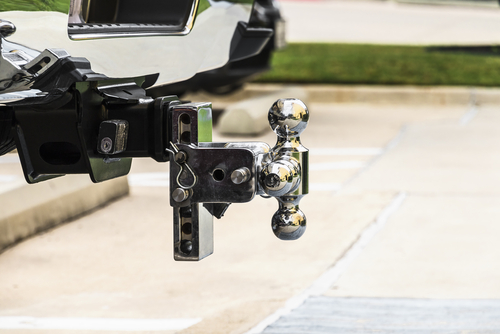Choosing the Right Trailer Hitch: A Comprehensive Guide

Choosing the right trailer hitch for your towing needs is a crucial decision that can impact the safety and performance of your vehicle. With so many options available on the market, it can be overwhelming to determine which trailer hitch is best suited for your specific requirements. In this comprehensive guide, we will explore the various types of trailer hitches, factors to consider when choosing a trailer hitch, and tips for proper installation and maintenance.
Types of Trailer Hitches
There are several types of trailer hitches available, each designed for different towing capacities and vehicle types. The most common types of trailer hitches include:
1. Ball Hitch: Ball hitches are the most popular type of trailer hitch and consist of a ball mount attached to the rear of the vehicle. They are versatile and can accommodate various trailer sizes and weights.
2. Receiver Hitch: Receiver hitches are a type of ball hitch that slides into a receiver tube attached to the vehicle’s frame. They are available in different classes based on their towing capacity, ranging from Class I (light-duty) to Class V (heavy-duty).
3. Fifth Wheel Hitch: Fifth wheel hitches are commonly used for towing large trailers, such as RVs and horse trailers. They are installed in the bed of a pickup truck and provide a stable connection between the trailer and vehicle.
4. Gooseneck Hitch: Gooseneck hitches are similar to fifth wheel hitches but have a smaller footprint and are installed above the rear axle of the vehicle. They are ideal for towing heavy loads and offer increased maneuverability.
Factors to Consider When Choosing a Trailer Hitch
When selecting a trailer hitch for your towing needs, it is important to consider the following factors:
1. Towing Capacity: Determine the weight of the trailer you will be towing and choose a trailer hitch with a towing capacity that exceeds that weight. Exceeding the towing capacity of a trailer hitch can lead to safety hazards and damage to your vehicle.
2. Vehicle Compatibility: Ensure that the trailer hitch is compatible with your vehicle’s make and model. Some vehicles may require additional modifications or accessory kits to install a trailer hitch properly.
3. Class Rating: Trailer hitches are classified into different classes based on their towing capacity. Select a trailer hitch class that aligns with the weight of the trailer you will be towing.
4. Receiver Size: Consider the size of the receiver tube on the trailer hitch, as it must match the size of the hitch accessory, such as a ball mount or bike rack.
5. Installation: Choose a trailer hitch that is easy to install and compatible with your vehicle’s existing frame or bumper. Professional installation is recommended for optimal safety and performance.
Tips for Installation and Maintenance
Proper installation and maintenance are essential for ensuring the safety and longevity of your trailer hitch. Follow these tips for successful installation and maintenance:
1. Consult the Owner’s Manual: Refer to your vehicle’s owner’s manual for specific instructions on installing a trailer hitch. Follow the manufacturer’s guidelines to avoid damage to your vehicle.
2. Secure the Hitch: Ensure that the hitch is securely attached to your vehicle’s frame or bumper using the appropriate mounting hardware. Check for any signs of corrosion or wear and tear that could compromise the hitch’s integrity.
3. Regular Inspections: Periodically inspect your trailer hitch for signs of rust, cracks, or loose components. Address any issues promptly to prevent accidents or damage to your vehicle.
4. Grease Moving Parts: Apply grease to moving parts, such as the ball mount and receiver tube, to reduce friction and wear. Lubrication can extend the lifespan of your trailer hitch and improve towing performance.
5. Follow Weight Limits: Adhere to the manufacturer’s weight limits for your trailer hitch to prevent overloading and ensure safe towing. Distribute the weight of the trailer evenly to maintain stability on the road.
Summary
Choosing the right trailer hitch for your towing needs requires careful consideration of various factors, such as towing capacity, vehicle compatibility, and installation requirements. By selecting a trailer hitch that aligns with your specific requirements and following proper installation and maintenance procedures, you can enjoy safe and efficient towing experiences. For expert guidance on choosing and installing a trailer hitch, consult with a reputable retailer or professional installer to ensure a successful towing setup for your vehicle.
